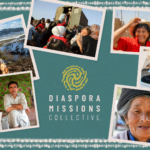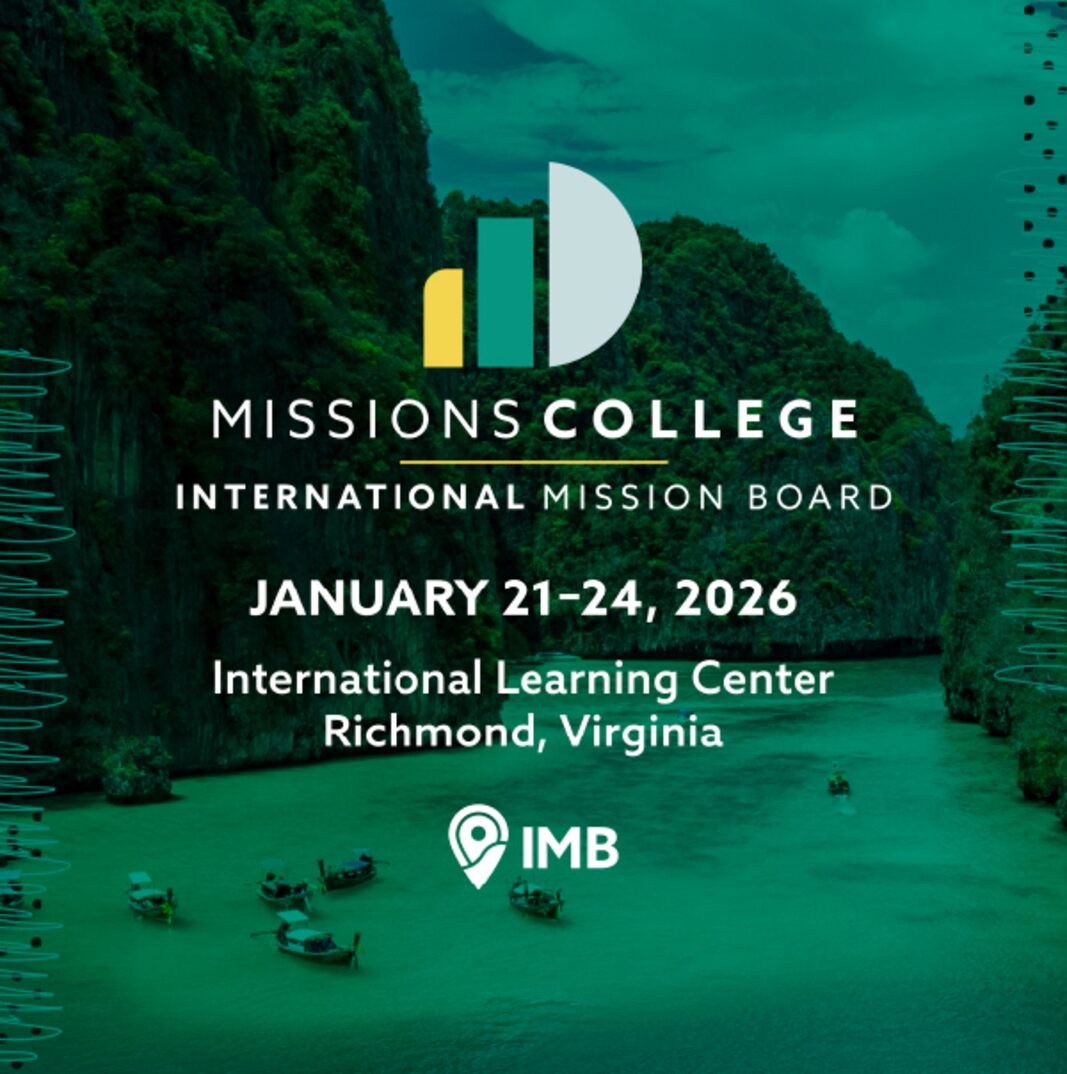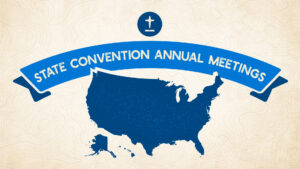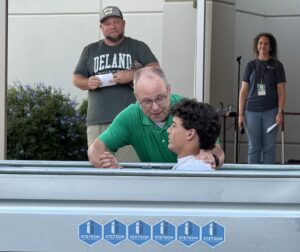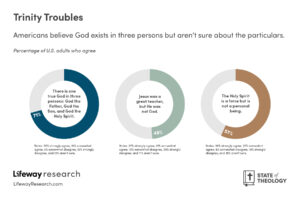
Tucson Chinese Baptist Church leads in a baptism at McNary Apache Baptist Church on the Fort Apache Indian Reservation. Photos courtesy of Tucson Chinese Baptist Church.
About 250 members of fourteen or more Chinese Southern Baptist churches from across America will traverse Native American lands in the northeastern quadrant of Arizona in mid-July.
It will be the twenty-fourth year for week-long missions projects done at the request of the leaders of eight Native American churches on the San Carlos and White Mountain Apache reservations, and on the Navajo reservation. These could range from VBS and sports camps to construction projects and youth activities.
“What we didn’t realize when we started was that Native Americans receive the Chinese much more openly than they would other groups,” said Joe Chan, pastor of Tucson Chinese Baptist Church since 2001 and a member of the church since 1986. “We don’t have the past to deal with. It became easy for them and for us, that we would go there every year.
“At that time there wasn’t any consistent group with them,” Chan continued. “Many go there one to two years. We want to maintain a long-term ministry relationship. In order to have any impact, we figure it has to be more long-term.”
Chan now is coordinator of what started in 1992 with three Chinese churches—including Tucson Chinese Baptist—participating in what still is called YSMP: Youth Summer Mission Project. Today, however, the teams consist of half teens and half adults.
Missions Emphasis
YSMP is one of several missions endeavors Tucson Chinese Baptist Church uses to help its teenagers acquire a passion for missions.

“It’s a way for the youth to get involved with missions early on, so they will experience firsthand what it means to share the Gospel,” Chan said. “It’s a good way for them to develop the seeds of the passion for people who do not know Christ.
“Also, sharing the Gospel will come easier for them because they’re doing it with people they don’t know, but I always emphasize that should be the beginning and not the end,” the pastor continued. “When they come home, they should develop a burden for people who don’t know Christ.”
That burden has grown in several participants from these churches over the years who are now serving as pastors and career missionaries, Chan said. This missions emphasis has recently been expanded to include overseas missions trips.
Outreach Ministries
Tucson Chinese Baptist also is a church that helps start and grow new congregations—Vietnamese in the past, which now is a stand-alone church, and Set Free Baptist Fellowship of Tucson, currently a mission church for homeless men.
Church members started in the mid-1980s helping with Caring Ministries of Tucson, which ministers on both sides of the Arizona/Mexico border, by sorting and packing food and clothing and leading in various classes, children’s ministries, and worship services of other ethnic groups. When the fledgling Vietnamese congregation needed a sponsor, the Chinese church quickly stepped in, until the church several years later became self-sustaining.
A year ago, Tucson Chinese Baptist took on homeless men as a ministry. Four men from the church are helping about a dozen mostly former addicts, most of whom are fresh out of jail, rebuild their lives through intensive Bible study and the church they named Set Free.
The church also started a ministry to international students at the University of Arizona in Tucson in 2006.
“Southern Baptists spend a lot of money sending missionaries to East Asia, so when students come from there to our city, it is logical for us to reach out to them,” Chan said. “Christian Challenge at the University of Arizona has graciously given us an office, and our assistant pastor spends part of his time working with Chinese students and local students on campus.”
This summer several college students will be on mission in East Asia for seven weeks, serving with a representative from the International Mission Board with whom the church has a long-standing relationship.
Participation in Catalina Baptist Association and in state convention ministries also are important outreach aspects of the church where about 140 people gather for Sunday morning worship.
“My desire is that the church will continue to be used by God,” Chan said.

Tucson Chinese Baptist Church’s facilities include a community center, built in 2008, for the five thousand Chinese who live in the Tucson area.
Reaching Tucson’s Chinese Population
At the same time it is involved in outreach ministries, Tucson Chinese Baptist Church pours care into its Cantonese-speaking, English-speaking, and Mandarin-speaking three-in-one congregation, recognizing “the unique ability and obligation to reach all segments and age groups of Tucson’s Chinese population,” according to the church’s website. The church ministers to other ethnic groups “in the blended tradition of an Antioch-spirited church,” the website continues.
Tucson Chinese Baptist Church baptized seven people last year, and seventy-nine within the last ten years. New members are immediately discipled and given opportunities to put their new faith into practice. Last year 381 participated in mission projects.
In 2008 the church more than doubled its physical size—from nine thousand to twenty-three thousand square feet—with a two-story, $1.5 million addition so it could provide the five thousand Chinese residents in the Tucson area with a three-thousand-square-foot multi-purpose community center, plus twenty-two classrooms and more. The addition was paid for by Tucson Chinese Baptist Church members when it was completed.
Cooperative Giving
Since 1991, Tucson Chinese has given 10 percent of its undesignated income to missions through the Cooperative Program. Chan says it’s the right thing to do, since CP helped start the church and helped with his seminary education.
The Cooperative Program is the way Southern Baptists work together in supporting the missions and ministry efforts of state conventions and the Southern Baptist Convention.
“I know our church was started partly through the efforts of the Cooperative Program; we think we ought to be a participant after that,” Chan said.
“I strongly believe that pastors who benefit from the Cooperative Program through seminary training should be big supporters of it. It’s still the most efficient way for mission cooperation.”


